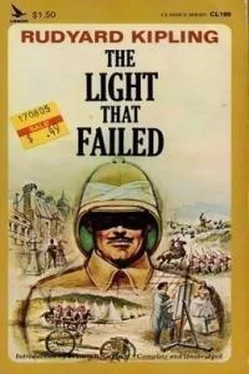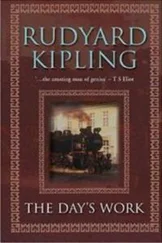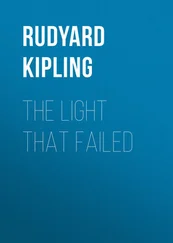'"Pisan soldiery surprised while bathing,"' remarked Dick, calmly.
'D'you remember the picture? It's by Michael Angelo; all beginners copy it. That scrub's alive with enemy.'
The camel–corps on the bank yelled to the infantry to come to them, and a hoarse shouting down the river showed that the remainder of the column had wind of the trouble and was hastening to take share in it. As swiftly as a reach of still water is crisped by the wind, the rock–strewn ridges and scrub–topped hills were troubled and alive with armed men.
Mercifully, it occurred to these to stand far off for a time, to shout and gesticulate joyously. One man even delivered himself of a long story. The camel–corps did not fire. They were only too glad of a little breathing–space, until some sort of square could be formed. The men on the sand–bank ran to their side; and the whale–boats, as they toiled up within shouting distance, were thrust into the nearest bank and emptied of all save the sick and a few men to guard them. The Arab orator ceased his outcries, and his friends howled.
'They look like the Mahdi's men,' said Torpenhow, elbowing himself into the crush of the square; 'but what thousands of 'em there are! The tribes hereabout aren't against us, I know.'
'Then the Mahdi's taken another town,' said Dick, 'and set all these yelping devils free to show us up. Lend us your glass.'
'Our scouts should have told us of this. We've been trapped,' said a subaltern. 'Aren't the camel guns ever going to begin? Hurry up, you men!'
There was no need of any order. The men flung themselves panting against the sides of the square, for they had good reason to know that whoso was left outside when the fighting began would very probably die in an extremely unpleasant fashion. The little hundred–and–fifty–pound camel–guns posted at one corner of the square opened the ball as the square moved forward by its right to get possession of a knoll of rising ground. All had fought in this manner many times before, and there was no novelty in the entertainment; always the same hot and stifling formation, the smell of dust and leather, the same boltlike rush of the enemy, the same pressure on the weakest side, the few minutes of hand–to–hand scuffle, and then the silence of the desert, broken only by the yells of those whom their handful of cavalry attempted to purse. They had become careless. The camel–guns spoke at intervals, and the square slouched forward amid the protesting of the camels. Then came the attack of three thousand men who had not learned from books that it is impossible for troops in close order to attack against breech–loading fire.
A few dropping shots heralded their approach, and a few horsemen led, but the bulk of the force was naked humanity, mad with rage, and armed with the spear and the sword. The instinct of the desert, where there is always much war, told them that the right flank of the square was the weakest, for they swung clear of the front. The camel–guns shelled them as they passed and opened for an instant lanes through their midst, most like those quick–closing vistas in a Kentish hop–garden seen when the train races by at full speed; and the infantry fire, held till the opportune moment, dropped them in close–packing hundreds. No civilised troops in the world could have endured the hell through which they came, the living leaping high to avoid the dying who clutched at their heels, the wounded cursing and staggering forward, till they fell—a torrent black as the sliding water above a mill–dam—full on the right flank of the square.
Then the line of the dusty troops and the faint blue desert sky overhead went out in rolling smoke, and the little stones on the heated ground and the tinder–dry clumps of scrub became matters of surpassing interest, for men measured their agonised retreat and recovery by these things, counting mechanically and hewing their way back to chosen pebble and branch. There was no semblance of any concerted fighting. For aught the men knew, the enemy might be attempting all four sides of the square at once. Their business was to destroy what lay in front of them, to bayonet in the back those who passed over them, and, dying, to drag down the slayer till he could be knocked on the head by some avenging gun–butt.
Dick waited with Torpenhow and a young doctor till the stress grew unendurable. It was hopeless to attend to the wounded till the attack was repulsed, so the three moved forward gingerly towards the weakest side of the square. There was a rush from without, the short hough–hough of the stabbing spears, and a man on a horse, followed by thirty or forty others, dashed through, yelling and hacking. The right flank of the square sucked in after them, and the other sides sent help. The wounded, who knew that they had but a few hours more to live, caught at the enemy's feet and brought them down, or, staggering into a discarded rifle, fired blindly into the scuffle that raged in the centre of the square.
Dick was conscious that somebody had cut him violently across his helmet, that he had fired his revolver into a black, foam–flecked face which forthwith ceased to bear any resemblance to a face, and that Torpenhow had gone down under an Arab whom he had tried to 'collar low,' and was turning over and over with his captive, feeling for the man's eyes. The doctor jabbed at a venture with a bayonet, and a helmetless soldier fired over Dick's shoulder: the flying grains of powder stung his cheek. It was to Torpenhow that Dick turned by instinct. The representative of the Central Southern Syndicate had shaken himself clear of his enemy, and rose, wiping his thumb on his trousers. The Arab, both hands to his forehead, screamed aloud, then snatched up his spear and rushed at Torpenhow, who was panting under shelter of Dick's revolver. Dick fired twice, and the man dropped limply. His upturned face lacked one eye. The musketry–fire redoubled, but cheers mingled with it. The rush had failed and the enemy were flying. If the heart of the square were shambles, the ground beyond was a butcher's shop. Dick thrust his way forward between the maddened men. The remnant of the enemy were retiring, as the few—the very few—English cavalry rode down the laggards.
Beyond the lines of the dead, a broad blood–stained Arab spear cast aside in the retreat lay across a stump of scrub, and beyond this again the illimitable dark levels of the desert. The sun caught the steel and turned it into a red disc. Some one behind him was saying, 'Ah, get away, you brute!' Dick raised his revolver and pointed towards the desert. His eye was held by the red splash in the distance, and the clamour about him seemed to die down to a very far–away whisper, like the whisper of a level sea. There was the revolver and the red light…. and the voice of some one scaring something away, exactly as had fallen somewhere before,—a darkness that stung. He fired at random, and the bullet went out across the desert as he muttered, 'Spoilt my aim. There aren't any more cartridges. We shall have to run home.' He put his hand to his head and brought it away covered with blood.
'Old man, you're cut rather badly,' said Torpenhow. 'I owe you something for this business. Thanks. Stand up! I say, you can't be ill here.'
Throughout the night, when the troops were encamped by the whale–boats, a black figure danced in the strong moonlight on the sand–bar and shouted that Khartoum the accursed one was dead,—was dead,—was dead,—that two steamers were rock–staked on the Nile outside the city, and that of all their crews there remained not one; and Khartoum was dead,—was dead,—was dead!
But Torpenhow took no heed. He was watching Dick, who called aloud to the restless Nile for Maisie,—and again Maisie!
'Behold a phenomenon,' said Torpenhow, rearranging the blanket. 'Here is a man, presumably human, who mentions the name of one woman only. And I've seen a good deal of delirium, too.—Dick, here's some fizzy drink.'
Читать дальше












